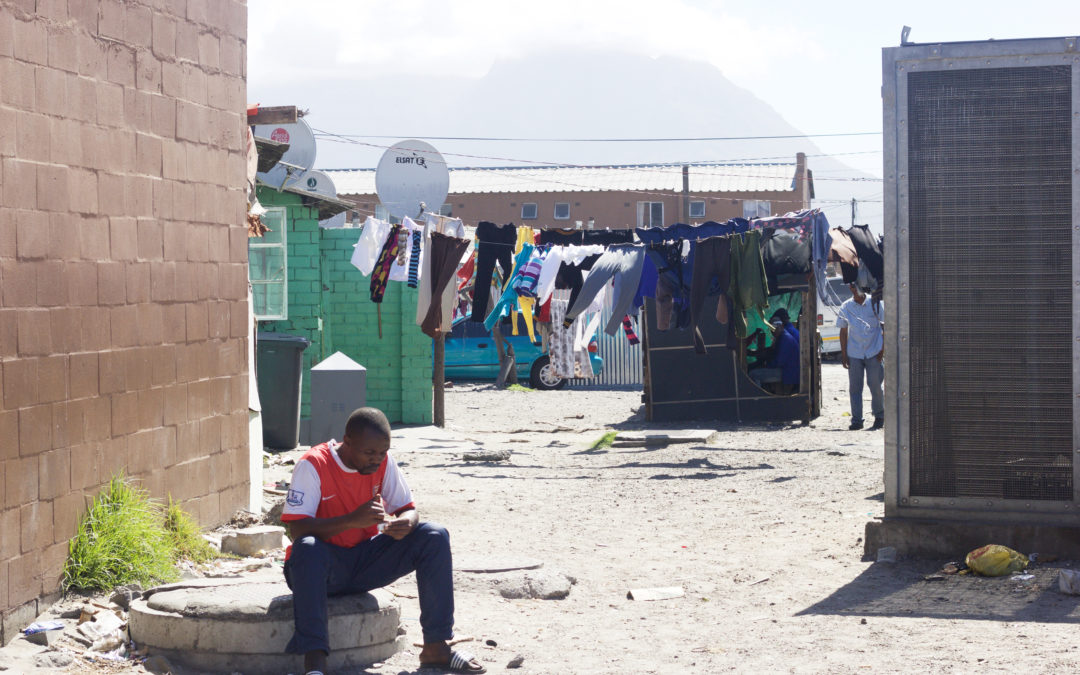In the outskirts of Cape Town, residents of Langa township are faced with detrimental living environments. Faulty electrical wires hang from makeshift homes made of Coca Cola emblazoned tin sheets and flammable tarps. Multiple families share a single faulty toilet while runoff from wetland marshes containing trash and unwanted substances filter through the streets. The same streets where children run unsupervised and barefoot, playing with discarded bits of Styrofoam and kicking wads of plastic wrap through smoking traffic.
When the Street Talk team last visited Langa, we passed men and women dressed in contrasting outfits of faded and bold colors. They primarily stood motionless in doorways on every corner perhaps rendered immobile by the stagnancy of their living conditions.
This is not a new reality. In fact, such dilapidated and haphazard homes have plagued Cape Town land since the construction of townships during South Africa’s apartheid adoption in 1948. Ringing a “white-only” city center, townships were erected skillfully to pen black and colored workers in distinct regions surrounded by highways and railways to dishearten the masses into a submissive chronic poverty.
Despite the abolishment of apartheid in 1994, relatively nothing has changed for the communities except a recent surge of outrage from township inhabitants, a few failed housing developments and many unkept promises.
On September 20th, 2016, over a thousand exasperated residents of Zone 18 in Langa demonstrated their need for adequate housing by protesting in the township streets resulting in 33 arrests, transport disruption as well as increased vandalism and citizen looting.
Regarded as the #LangaShutdown on social media, the protest followed several previous attempts over the last year to demand basic human rights, a request for access to privacy, cleanliness and safety.
In the last year, there was a semblance of change within Langa. Completion of 463 out of a proposed five-year project of 1,300-housing units (Phase 1 of the Langa Hostels Community Residential Units) in the Old Depot Site in 2015 was an encouraging step forward for the families lucky enough to gain rental access.
Complete with a kitchenette, toilets, showers with solar-heated water and safe yards, these units stand luxuriously next to the adjacent shanty homes.
However, citizens of Langa were unsatisfied with the progress and saw the incorporation of limited upgraded housing as a limited option merely erected to satiate a fuming population.
A more ambitious housing project began in the township prior to the Langa Hostels were built, the N2 Gateway Project. The Minister of Housing at the time, Lindiwe Sisulu, announced that 22,000 would be built in merely six months.
However, the project only generated 821 uninhabitable units. Exposed plumbing, wiring and collapsing walls were found within the homes and the project stalled.
The promises made to Langa are many but the results are few.
In our episode, Kwanele-Broken Promises, we heard from citizens of Langa as they share the backstory behind their appeal against inadequate housing to Cape Town Mayor Patricia de Lille. They speak of the engrained inhumanity that festers throughout decades of normalized filth, violence and limited accessibility to modern advancement. We commend their proactivity in this convoluted reality.




